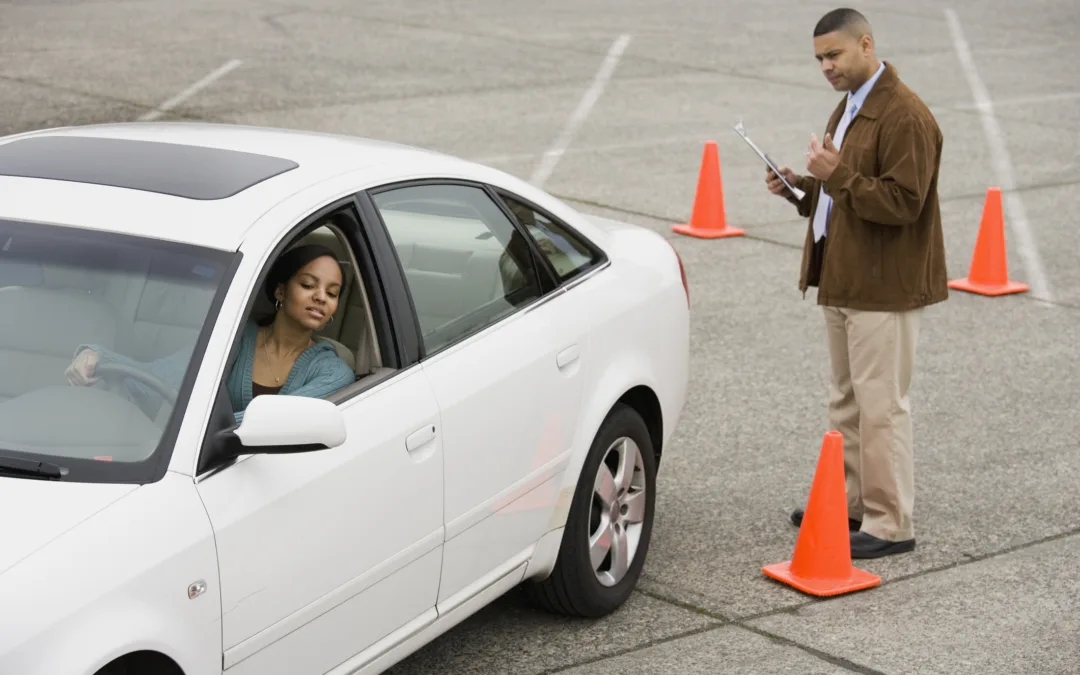
An abortion rights rally at Michigan Capitol in Lansing, 2019. (Rachel Goodhew/ Shutterstock)
As anticipated after a leaked draft of the opinion surfaced in April, the US Supreme Court has struck down a legal precedent set out in Roe v. Wade—which protected the right to an abortion nationwide and prevented individual states from enacting their own bans.
So, where does that leave Michigan?
Need to Know
- A 1931 law makes it a felony in Michigan for healthcare professionals to provide abortion services unless they’re done only to save the life of a pregnant person. An injunction issued last month in the Court of Claims, however, has temporarily halted enforcement of that old law.
- Until the lawsuit from Planned Parenthood Advocates of Michigan is resolved, it’s unlikely the injunction will be lifted—meaning abortion remains legal in all 83 counties, at least for now.
- In separate litigation, Gov. Gretchen Whitmer has turned to the Michigan Supreme Court to decide whether the 1931 abortion ban is constitutional. Activists are also working on a ballot initiative to amend the state Constitution. The deadline to submit petition signatures is July 11.
MICHIGAN—The conservative-majority US Supreme Court today published an opinion striking down a precedent set in Roe v. Wade that for decades has protected a person’s right to have an abortion across the country. As a result, a hodgepodge of individual state abortion laws are set to be reinstated—creating uncertainties over the future legal status of abortions nationwide.
Almost half of states are now set to outlaw or severely restrict abortions. But what does the decision mean for Michigan? Here are seven key things you need to know right now:
There is no ban on abortions in Michigan—at least for now.
Overturning Roe effectively put regulation of abortion care into the hands of state governments. In Michigan, there’s a 1931 state law that bans abortions unless necessary to “preserve the life” of a woman. It was put in place before Roe, and would come back into play by default—if not for an injunction in the Court of Claims that temporarily prohibits enforcement of the law statewide.
That means, at least for now, abortion is still legal in Michigan.
Without the injunction, the 100-year-old abortion ban would make it a felony for healthcare providers to perform abortions in the state unless it’s to protect the life of a pregnant person. It also criminalizes selling or advertising medications (like Plan B) that could induce an abortion.
RELATED: A 1931 Statute Could Soon Ban Abortions in Michigan. This Lawsuit Aims to Fix That.
In her ruling last month on the 1931 law, Judge Elizabeth Gleicher said the injunction only serves as a temporary safeguard for abortion access until the Michigan court can make a “full ruling on the merits of the case.” That means the state law is essentially nullified until the lawsuit from Planned Parenthood can be resolved. A spokesperson for Planned Parenthood said that the injunction “should protect abortion access while our case proceeds” and that “it would be very out of the ordinary for a court to remove a preliminary injunction before a case concludes.”
“The preliminary injunction will protect abortion access in the immediate aftermath of the Supreme Court decision in Dobbs v. JWHO,” she said. “Our doors will remain open, and patients can keep their appointments. Our team of expert doctors, nurses and health care professionals are working to ensure we can serve as many patients as possible.”
Gov. Whitmer labels it a “sad day for America.”
In a statement issued following Friday’s ruling, Whitmer said the unelected group of conservative judges acted “squarely against the will of the people and medical expertise.”

“We can all sense the despair that tens of millions of Americans—our neighbors, family members and friends—are feeling right now. However we personally feel about abortion, health—not politics—should drive important medical decisions,” she said. “I want every Michigander to know that I am more determined than ever to protect access to safe, legal abortion. Now is the time to use every tool in our toolbox to protect women and reproductive health care … I will fight like hell to protect every Michiganders’ right to make decisions about their own body with the advice of a medical professional they trust. I will not give in or give up for my kids, your kids, and the future of our great state.”
The injunction that protects abortion access is under attack.
Attorney General Dana Nessel has vowed not to appeal the decision to temporarily suspend the law, but anti-abortion groups have reportedly already challenged the decision by filing briefs of their own with the court and attempting to move the litigation out of the Court of Claims.
In a motion filed this month, the Republican-controlled state Legislature also asked to intervene as defendants in the lawsuit and requested Gleicher reconsider the injunction issued last month.
RELATED: Michigan Senators Show Support for Bill Guaranteeing the Right to Abortion Care
No decisions have been made and no hearings are scheduled, according to court records, though one plaintiff—Jackson County Prosecutor Jerry Jarzynka—filed a motion for immediate consideration on Tuesday and requested a response from the court by June 28. His attorneys at the Great Lakes Justice Center didn’t return messages left at the office earlier this week.
If the old state law were to go back into effect, providers who perform abortion services could be sentenced to prison for up to four years and be fined up to $5,000—in addition to possibly losing their medical licenses. Individual clinics themselves could also be penalized, Bridge reports.
Meanwhile, without the abortion ban in place in Michigan, people with appointments should feel free to still go to them. If you need access to abortion information, you can also find safe and private clinics here. And if you can’t afford an abortion, there are networks that can help.
House Republicans are also working to craft a new abortion ban of their own—though it would almost certainly be vetoed by Whitmer if it passed the Legislature. The measure aims to craft a potential 10-year prison sentence for doctors who perform abortions, as well as create a 20-year sentence for those who manufacture, sell, or distribute medications intended to induce abortions, reports the Detroit Free Press. Plan B would be allowed.
Sponsors include state Reps. Steve Carra (R-Three Rivers); Matt Maddock (R-Milford); Gary Eisen (R-St. Clair Township); Bob Bezotte (R-Marian Township); Daire Rendon (R-Lake City) and TC Clements (R-Temperance). The legislation is now before the House Judiciary Committee, though it’s reportedly unclear whether House Republican leadership will push for action.
The real legal battle will likely be waged in the Michigan Supreme Court.
The litigation from Planned Parenthood could eventually make its way to the seven justices on the Michigan Supreme Court to make a final ruling on whether the state’s 1931 abortion ban jibes with the due process and equal protection clauses of the state Constitution. Whitmer has also asked the state Supreme Court to weigh in with separate but similar litigation.

In an April 12 interview with The ‘Gander, Lt. Gov. Garlin Gilchrist said that going through the state Supreme Court is Michigan’s best way to brace for the fallout of a Roe reversal.
Four of the state’s top judges—including Chief Supreme Court Justice Bridget McCormack—are Democrats. The other three are Republicans appointed by former Gov. Rick Snyder. In her injunction, Gleicher said Planned Parenthood had a “strong likelihood” of winning the case.
If the injunction is lifted, Attorney General Dana Nessel has also vowed not to enforce the ban. Local prosecutors like Jarzynka, however, could still decide to enforce the law. Nessel’s office would have no ability to prevent local officials from enforcing the law and it’s unclear whether clinics in conservative areas will roll the dice and stay open, according to reports from Bridge.
RELATED: Faith Leaders: We Support Your Right to a Safe, Legal Abortion
“If the Supreme Court overturns Roe v. Wade, the Justices will be opening the door for state governments and politicians to interfere in our most personal medical decisions,” said Ashlea Phenicie, Interim Director of Communications at Planned Parenthood Advocates of Michigan.
The US Supreme Court doesn’t care for popular opinion—including in Michigan.
Friday’s ruling follows a series of polls that show most Michiganders disagree with the decision.
In a January 2022 WDIV/Detroit News poll, 67% of Michiganders supported Roe, and 66% supported repealing Michigan’s 1931 trigger ban on abortion. More than 77% believed abortion should be a woman’s decision. In an April Courier Newsroom/Data for Progress poll, only 28% of respondents said the government should be able to make decisions on reproductive rights.

In a 2021 Washington Post-ABC poll, 75% of respondents said decisions on abortion should be left to a woman and her doctor—including 95% of Democrats, 81% of Independents, and 53% of Republicans. The poll also found that support for overturning Roe “peaks among White evangelical Protestants, 58% of whom say the court should overturn the precedent.”
The report further noted that 62% of Catholics say Roe should not be overturned.
According to a 2019 study, Michigan would be the second most-impacted state in the nation following a change to Roe. If the old ban goes back into effect, there are approximately 2.2 million women of reproductive age in Michigan who could stand to lose their right to make decisions for their own bodies—regardless of rape, incest, or other sexual violence.
RELATED: Only 13% of Republican Voters Say Developments Around Abortion Make Them Happy
Those seeking safe abortions would need to travel to one of the 21 states where abortion would remain legal—meaning people with limited incomes, a lack of child care or flexible work schedules, and those needing increased privacy or protection (due to domestic violence or similarly threatening situations), would essentially lose any access to legal clinics.
Democrats are largely opposed to efforts to curtail access to abortions. Meanwhile, Republican candidates for governor and attorney general in Michigan have pledged to enforce the 1931 law.
Reproductive care is still widely available in Michigan.
Ahead of the ruling, the state Department of Insurance and Financial Services launched a new consumer website this week to help Michigan women understand insurance coverage for contraception and other related reproductive health services.

“At some point in her life, nearly every woman will use contraception to either treat a health condition or for family planning purposes. These treatments have never been more important for women’s health and it’s our goal to make them affordable and accessible,” Whitmer said in a press release announcing the new online resources. “We are doing all we can to make sure that contraception and other reproductive health services remain accessible to the Michiganders who count on them. I will work with anyone to keep women safe and help them plan their families on their own terms.”
For more details, call DIFS from 8 a.m. to 5 p.m. on weekdays at 877-999-6442.
“MDHHS works tirelessly to provide medical coverage and services to the people of Michigan to help them live their healthiest lives,” MDHHS Director Elizabeth Hertel said in a press release. “Access to affordable or no -cost contraception is vitally important when it comes to providing reproductive health care services to enable women to plan for pregnancy at a time that works best for themselves and their family.”
RELATED: Everything You Need to Know About Medication Abortion in Michigan
Planned Parenthood also has a “Plan B,” so to speak.
The ACLU and Planned Parenthood, which operates abortion-providing 14 health centers across the state, are also working on a state ballot initiative for the November 2022 elections called “Reproductive Freedom for All.” It aims to enshrine abortion rights into the state Constitution.
The deadline for the ballot initiative campaign to submit signatures is July 11. Organizers have billed the initiative as “the best action Michiganders can take” to protect the right to abortions.

“Generations before us have fought tirelessly to gain and protect the rights we have today. With this ruling, the next generation will have fewer rights—unless we fight on,” Phenicie added. “Every day in every way, we’ll stop at nothing to make sure people have access to the essential health care they need to control their bodies and build their futures. This is far from over.”
Nessel also released a statement: “Now we must do what our courts have failed to do: we must act to ensure that women are not permanently relegated to second-class citizens in this country. I will continue to fight for a women’s right to choose with the full weight of my office. Michigan residents must continue to fight for reproductive rights at the ballot box in November.”
“The overturning of Roe is not just the loss of a right; it is the erosion of our status as equal citizens under the law,” she added. “As a nation, we trust in our highest court to hold sacred their duty, free from political whim. Today’s decision sets a dangerous precedent in reversing 50 years’ of settled law; creating extraordinary upheaval in the American legal system; and putting at risk other individual rights that generations of Americans fought to secure and preserve.”
Politics

Michigan lawmakers look to break (another) state funding record for public schools
Democratic lawmakers are hashing out plans to bring state funding for Michigan’s public schools to another new, all-time high—and ensure teachers...

Mundy Twp. project gets state funding in effort to boost local manufacturing
More than $9 million awarded to a planned development project in Genesee County could provide a big boost to the local economy and help create...

It’s official: Your boss has to give you time off to recover from childbirth or get an abortion
Originally published by The 19th In what could be a groundbreaking shift in American workplaces, most employees across the country will now have...
Local News

More Michigan teens could soon take driver’s ed in their own schools
Privatization of driver’s education means that only 38 Michigan high schools offer affordable in-school driving classes for students. New grants...

That one time in Michigan: When we became the Wolverine State
How did Michigan become tied to an animal that's practically nonexistent there? Among the many nicknames that the state of Michigan has, arguably...






